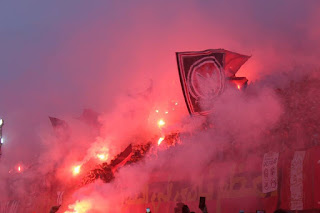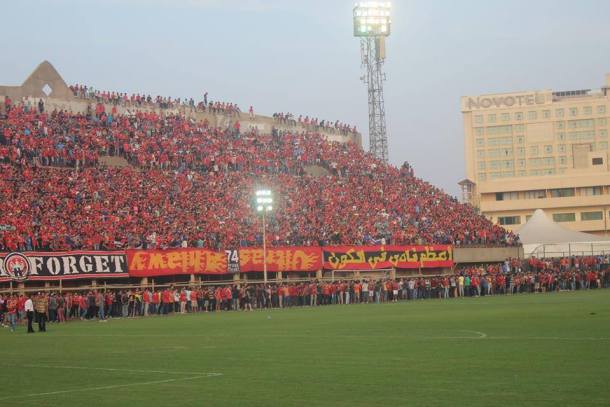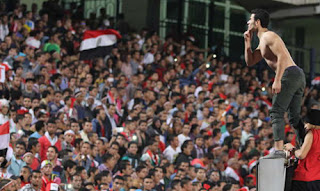 Von James M. Dorsey
Von James M. Dorsey
As Egyptian general-turned-president Abdel Fattah Al Sisi struggled this week to get Egyptians to cast their vote in parliamentary elections, militant soccer fans put widespread youth disillusionment with the president’s autocratic rule on public display.
More than 10,000 fans rushed in response to a call by Ultras Ahlawy, the militant support group of storied Cairo club Al Ahli SC, to the Mokhtar al-Touch Stadium on election Sunday to watch their storied team train. It was the club’s first training since it last week won the Egyptian Super Cup.
Ultras Ahlawy issued the brief call on its Facebook page that has more than 1.1 million followers. Ultras Ahlawy together with other militant fan groups has played a key role in anti-government protests in the last 4.5 years starting with the 2011 popular revolt that toppled President Hosni Mubarak.
Fan neglect of the election reflected a widespread sentiment among Egyptian youth expressed by a hashtag #badalmatantakhib or #insteadofvoting that was trending on Twitter.
Continue reading “Egyptian soccer fans put youth disillusion with elections on public display”



 Von James M. Dorsey
Von James M. Dorsey

